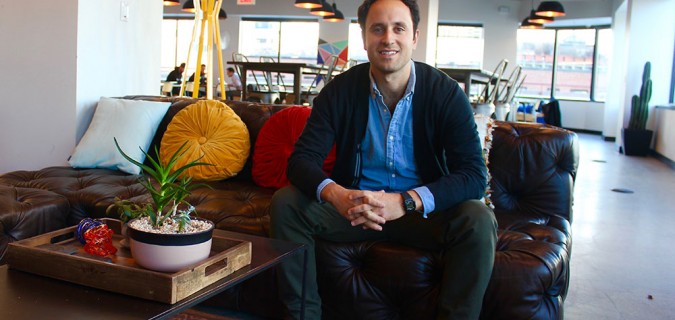Ben Jabbawy is the founder of Privy.com, which offers a suite of email capture tools. The Privy platform is used by over 10,000 consumer oriented businesses. Follow him @jabbawy.
Who is your hero? (In business, life, or both.)
My hero in life and in business is my father. He came to the U.S. alone, without a penny to his name. He worked hard, took risks and was able to put himself through MIT, raise a family and provide his family with incredible values and an entrepreneurial spirit.
What’s the single best piece of business advice that helped shape who you are as an entrepreneur today, and why?
Entrepreneurship is about conviction and optimism. While building out this business and previous businesses, I’ve seen time and time again that investors, customers, and recruiters all seem to say “no” to entrepreneurs.
But I remember reading something that Jason Lemkin (founder of Docusign) wrote that has really stuck with me: If you can get to 10 customers, you can get to 100. If you can get to 100 customers, you can get to 1,000, and so on.
What’s the biggest mistake you ever made in your business, and what did you learn from it that others can learn from too?
It’s so easy to look for comparable companies and say, “If this is how they sell their product and go to market, the same can work for us.”
I’ve mistakenly felt so much team and investor pressure to move faster that I’ve blindsided the internal feelings that our company is different. As the founder, you need to have patience and be willing to test things that work for your business, even if they fail. You also need to be willing to be brutally honest about tests that fail. Making key hires before you understand basic business issues could be detrimental.
What do you do during the first hour of your business day and why?
I start and end my day with customer service. I work directly with our customers to understand where we’re falling short, and make sure we’re focused on solving real customer pain points. It keeps me close to my customers and helps me focus the company on the two to three things that truly matter.
What’s your best financial/cash-flow related tip for entrepreneurs just getting started?
Force yourself to use as little capital as possible when getting your idea off the ground. The longer you can last on as little capital as possible, the more time you will have to figure out the right product and go-to-market strategy.
That’s not to say you shouldn’t raise outside capital. But if you do decide to do so, you’ll have much more leverage, data and conviction going into your pitches.
Quick: What’s ONE thing you recommend ALL aspiring or current entrepreneurs do right now to take their biz to the next level?
Find the one most important metric driving your business. It could be customer count, users, revenue, contracts or something else. Force yourself to choose one. Then track that metric every day and week and ask yourself, “What can I do today?” or “What can my team do today?” to grow that metric.
I promise that you can tie all metrics back to a single KPI. There is always a trickle-down effect.
What’s your definition of success? How will you know when you’ve finally “succeeded” in your business?
To me, success is a lot more than a financial metric. It means providing my family with the same opportunities I was given growing up. It means enjoying the work I’m doing on a daily basis, with the ability to solve creative and technical problems. And it means spending time with the people in my life that matter most. If I can achieve all of this, I’ll feel like I’ve achieved more success than any bank statement could ever relay.













